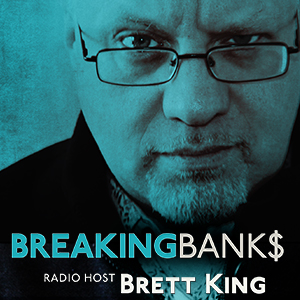Breaking Banks and Finextra continue their series on Women in Fintech with a profile of Kitty Parry, Founder and CEO of the Social Media Charter.
Kitty is recognized as one of the UKâs most up and coming female entrepreneurs. She has most recently been named Young Global Leader by the World Economic Forum at Davos (2014), shortlisted as the Communications Professional of the Year (2013), selected as a finalist as âYoung Business Woman of the Yearâ by the Network She Awards and is one of Britainâs top three PR professionals (2009). Kitty is also founder of the Accelerating Change Network (ACN) (2011), member of the UN Media Coalition and mentor to the Cherie Blair foundation.
Please catch Kitty’s interview on the March 12 episode of Breaking Banks and read the interview here:
FINEXTRA: Give us a rundown of what Social Media Charter is?
KITTY: We are trying to set the standard for compliant social media and this has come about because many financial institutions want to do social media, but are afraid to because of the compliance risks and reputation risks. So we put heads of compliance and heads of digital in a room together with the FCA on Nov 2013 (the day of the Twitter IPO) and out of that came the Charter â which is a set of principals which outlines what compliant social media is for financial services. From that we developed language â both legal-ese and laymanâs language and we gave that to the FCA and that has been the bedrock for our process moving forward.
FINEXTRA: Is this a social media charter for the UK or can it be applied globally?
KITTY: Initially, for the UK. We want to get this right in the UK first. But we have used Finra and the SEC and the European directives to develop our guidelines â we will become global very quickly. Obviously, many of the companies we work with IN the UK are global institutions. If you tweet in the UK and you are going to be read by the SEC, you need to be very careful.
FINEXTRA: You mentioned the FCA and Finra and regulations â do you think a lot of bank hide behind regulations? Do you think a lot of banks claim that regulations stop them using social media effectively?
KITTY: The need for regulations, especially over the past ten years is important. It makes us as customers and clients feel safe that we are being conversed with in a manner that is fair. The issue lies where the industry doesnât know where to interpret the regulation. And that is what we are trying to do now â pulling the industry together so we can interpret it and learn from different best practices and problems to make sure that the future is much brighter than it has been for financial services to date.
FINEXTRA: Although social media is global â are there any compliance issues unique to the UK market that global banks should be aware of?
KITTY: The policy based approach of the FCA and London means that there are many different interpretations of the rules. While social media is media neutral â we will be seeing guidance later on this year 2015 â social media managers still arenât sure how certain aspects will play out. We are setting standards on what social media compliance looks like â proper archiving; assuring employees are trained and know what they are doing on social media; hat product information should look like and making sure it is fair compliant and so on.
FINEXTRA: How do you advise compliance officers?
KITTY: Initially we go in with an audit â which is 170 questions – which runs from the CRO, COO, head of HR etcâ¦We assess the company, look through all the policies and social media practices and then pull together a report. That report gets pulled together with intelligence from lawyers, communications experts, and social media experts. From that we then do the training â again done by barristers â throughout and learning continuously throughout the business.
FINEXTRA: Which banks do social media correctly?
KITTY: One firm that have done it, as almost an extension of their customer service to date, and done very well, is First Direct. They deserve to be praised for how they run their social media. They are an example of being human on social media â they do it in a natural manner â they put a human face in front of the brand. It makes customers feel confident that there are real people inside that institution.
FINEXTRA: I am glad you mentioned First Direct, because I feel that they saw social media a communication channel , rather than an ‘alternative’ communication channel â do you think that mind set is still prevalent at banks â that social media is an âalternativeâ channel?
KITTY: Our line is social media is to email what email was to fax. That is what of the most terrifying phrases that came out of Davos. Many CEOs hear it and realise it is increasing in prevalence, but donât understand A: Why this is happening? or B. Is this long term?
Now obviously it is. And it is not just a communication channel, it is far more valuable as a listening tool â understanding what customers want. Focus groups are so specific and so often biased. Social media is honest and real and allows firms to create innovative products rather than products that are âsuitableâ.
FINEXTRA: What has been your biggest lesson?
KITTY: The biggest lesson is not to give up. In America you are celebrated when you fail a business because that is half of the learning curve â you fail and you build you fail and you build, etc⦠In the UK it is much more frowned upon. The biggest lesson is just to keep going. Or just call it a day, and at the end of the day, you get up the next day and keep going.
It is the hard graft that pays off.
FINEXTRA: What was Davos like?
KITTY: From an outside view it can look like a lot of people, with a lot of money coming together and having parties â it is far from that. It is a celebration of those who work very hard. There is never a time of the day where you wouldnât talk about work. And it isnât frowned upon because everyone out there is trying to help each other. That is what the World Economic Forum have done very well. They have really tried to focus on people working together and helping each other.
FINEXTRA: What was the conversation like at Davos?
KITTY: We have a really interesting panel called âsocial media friend or foeâ. The outcome of that was not whether [social media] is a âfriend or foeâ but that it is happening and we need to move forward further conversations, particularly with the disruptive finance group at the WEF. Whilst last year many of the of the delegates we rather fearful of [disruptive finance] â this year it is being embraced and understood particularly as it is beginning to take significant margins off of big corporates.
FINEXTRA: What advice would you give to an entrepreneur?
KITTY: I will never make a decision unless I have all the information at my fingertips. Fact gathering, not anecdotes, so you can make a real decision not an emotional decision. In financial services we are going to see more technology changes in the next five years than in the past 20 years.






